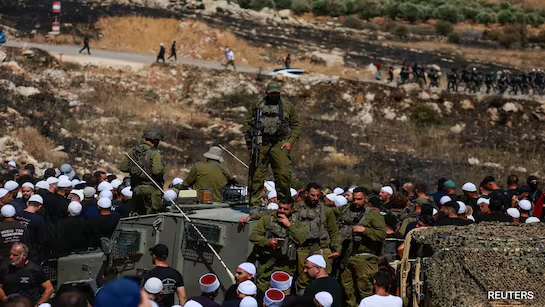Rising Tensions in Suweida
A sudden wave of deadly clashes erupted in Syria’s Suweida province after a Druze merchant went missing on July 13, triggering fierce battles between local Druze militias and nearby Sunni Bedouin fighters.
The unrest claimed over 350 lives by midweek, according to the Syrian Observatory for Human Rights. The Syrian government struggled to restore order while Druze groups resisted the return of official forces, fearing loss of their hard won autonomy.
Israel’s Unexpected Intervention
On July 15 the Israeli military launched air strikes over Suweida, saying it acted to shield the Druze community and to push back pro‑Damascus forces it blamed for civilian attacks. In a public statement the Israeli defense ministry declared that its jets struck military vehicles and command posts near Suweida city.
The next day Israel widened its scope, hitting Syria’s defense ministry and army headquarters in Damascus. These moves mark Israel’s deepest escalation in the conflict since December 2024, when it destroyed scores of Syrian military sites and seized control of a United Nations buffer zone in the Golan Heights.
Who the Druze Are
The Druze trace their roots to a sect that broke from Shia Islam over a thousand years ago. Their faith remains closed to outsiders and their teachings stay secret. About one million Druze live across Syria Lebanon and the Golan Heights.
Roughly 3 percent of Syria’s people are Druze. In Israel Druze citizens serve in the military, a rare arrangement for minority groups there. Many Syrian Druze see Israel as a protector against threats they believe emerge from Damascus.
Fault Lines and Fears

The recent violence follows months of rising friction between the Druze and Syria’s new government under former jihadist leader Ahmed al‑Sharaa. Local militias refuse to join national forces or allow checkpoints near their towns. At the same time some Syrians fear Israel’s growing role.
Some Druze leaders accuse Israel of fanning divisions to gain influence in Syria’s south. Meanwhile Arab states and the United Nations have condemned the strikes. On July 16 United Nations Secretary‑General António Guterres labeled the attacks “escalatory” and urged all sides to step back.
Regional Reactions
The United States voiced grave concern and pressed for an immediate halt to the violence. Saudi Arabia called Israel’s actions “blatant attacks.” Turkey warned the strikes would undermine Syria’s efforts to build lasting stability. Iran described the raids as “predictable aggression.” These responses show how a local clash can ripple across capitals and deepen mistrust among regional powers.
What Comes Next
For now Syria’s south remains tense. Druze fighters have vowed to hold their ground and Israel has signaled it will act again if it sees new threats near its border. The Damascus government seems determined to reassert control, yet its forces face strong local resistance. As a result Syria’s path toward recovery looks more uncertain than ever.
Personal Analysis
And here is my take. Syria has spent more than a decade in ruin and its people bear deep scars. Local groups now guard pockets of land as though they hold the key to survival. Israel has shown it will step in if it senses a threat, even far from its own towns. That stance may win support within some Druze circles, but it also risks fueling new cycles of fear and retaliation. In the end neither outside force nor central power can rebuild Syria alone. Only a genuine effort by all communities to seek a shared future can bring real calm to this land.
Sources: bbc.com

